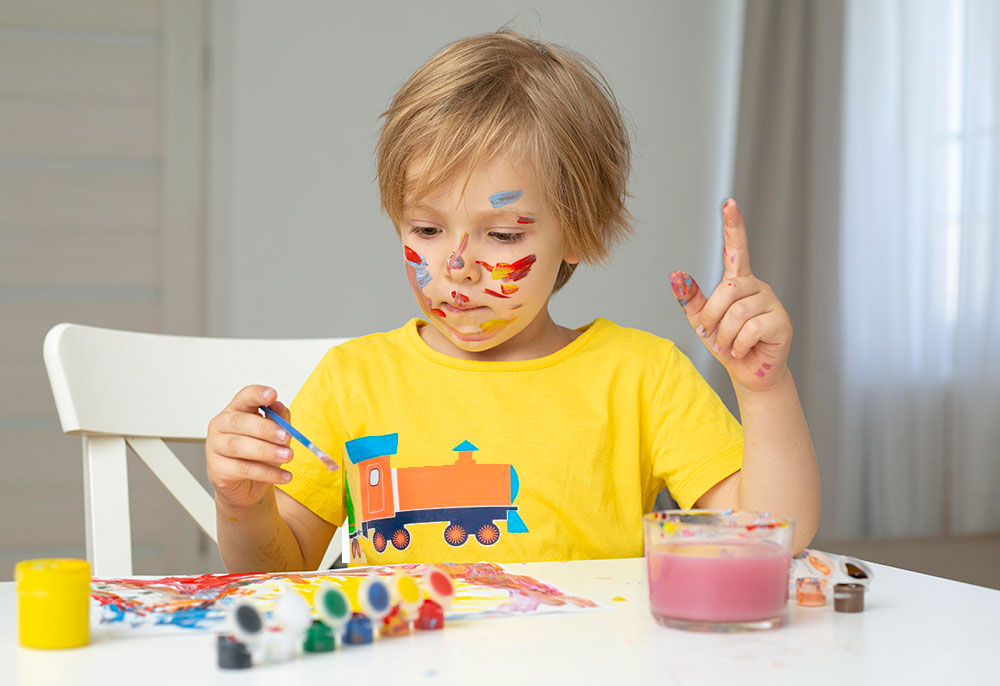
Emotion regulation is a key element of every child's development. The ability to recognize, express, and control one's emotions impacts daily functioning, relationships with peers and adults, and overall well-being. Children who learn to regulate their emotions are better prepared to cope with life's difficulties and challenges.

Emotion Recognition
The first step in learning to regulate emotions is recognizing them. Children need to learn to identify exactly what they're feeling. The following can be helpful in achieving this:
- Books and stories : Reading books that portray different emotions helps children understand how they might feel in different situations.
- Games and Activities : Games that involve naming emotions can be both educational and fun. For example, the "emoji" game involves showing emotions using faces or emojis and guessing what the person is feeling.
- Educational fairy tales: Many fairy tales for children are based on emotions and show how to deal with them in a healthy way.
- Talking about emotions : Regularly talking with your children about how they feel and why helps them better understand their emotional states.
Young children often lack the experience to name their feelings. Parents should help them identify their emotions, but not impose them. It's also important to share your own emotions with your child, expressing how you felt in specific situations and how the parent coped with them.

Accepting Emotions
Another important step is learning to accept emotions. Every feeling, whether positive or negative, is natural and deserves acceptance. Children need to understand that what they feel is okay. To achieve this, parents and caregivers can:
- Lead by example : Adults showing and accepting their own emotions show children that emotions are a normal part of life.
- Support the verbalization of feelings : Encouraging children to talk about their emotions without judgment helps them accept their own feelings.
- Don't punish emotions : It is important that children are not punished for expressing their emotions, but taught how to deal with them constructively.
There are no good or bad emotions. Emotions accompany us in life and are a response to how we perceive the world and what happens to us in it. A wise parent will not punish a child for expressing "bad" emotions, but will help them understand them and learn to manage them.

Expressing Emotions
Once children learn to accept their emotions, the next step is to learn how to express them appropriately. The following can be helpful:
- Art and Creativity : Drawing, painting, creating stories, or playing musical instruments can be great ways to express emotions.
- Movement and play : Physical activity such as dancing, running or active play helps release pent-up emotions.
- Relaxation techniques : Breathing exercises, meditation, and yoga are effective methods for reducing stress and expressing emotions in a controlled way.

Regulating Emotions
The ultimate goal is to teach children how to regulate their emotions in different situations. Effective strategies include:
- Establishing routines : A consistent daily routine gives children a sense of security and helps them manage their emotions.
- Problem-solving : Teaching children how to solve problems rather than avoid difficult situations helps build self-confidence and better emotion regulation.
- Social support : Building strong, supportive relationships with family and peers gives children a sense of belonging and support, which is crucial for regulating emotions.

Specialist Help
In some cases, children may need additional help learning to regulate their emotions. Professionals, such as child psychologists , can offer support and tools tailored to a child's individual needs. Behavioral therapies, therapy sessions, and emotional support programs are available for children with specific developmental needs.

Emotion regulation is a key element of children's development, impacting their ability to cope with everyday challenges and build healthy relationships. By recognizing, accepting, expressing, and regulating emotions, children learn to manage their feelings constructively. Support from family, teachers, and professionals plays a crucial role in helping children develop these important life skills.





Podziel się:
Putting a Baby to Sleep - How to Put a Toddler to Sleep Effectively
The Best Evening Rituals for Kids - How to Effectively Prepare for Bed and the Next Day